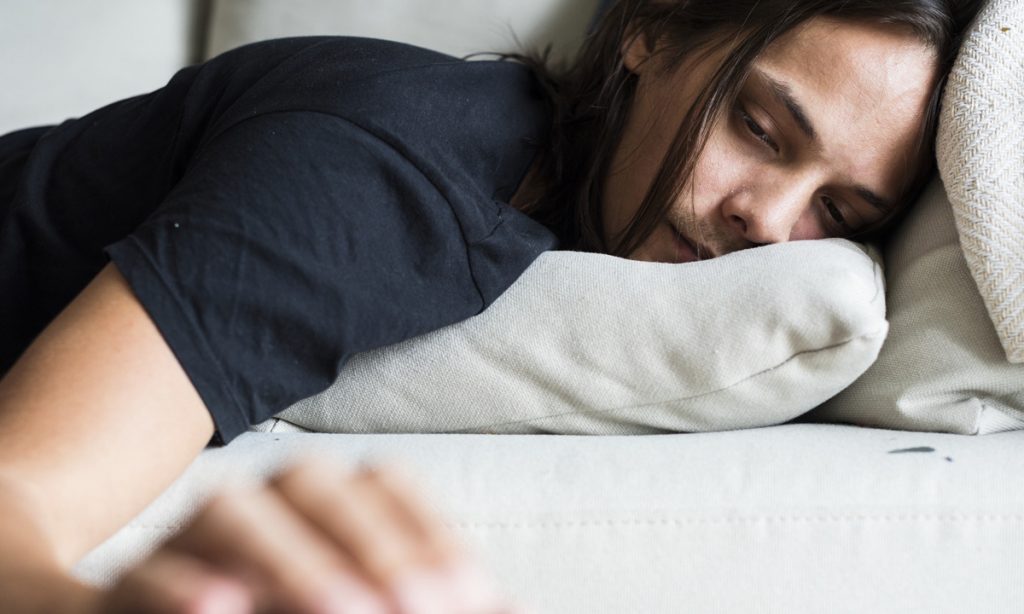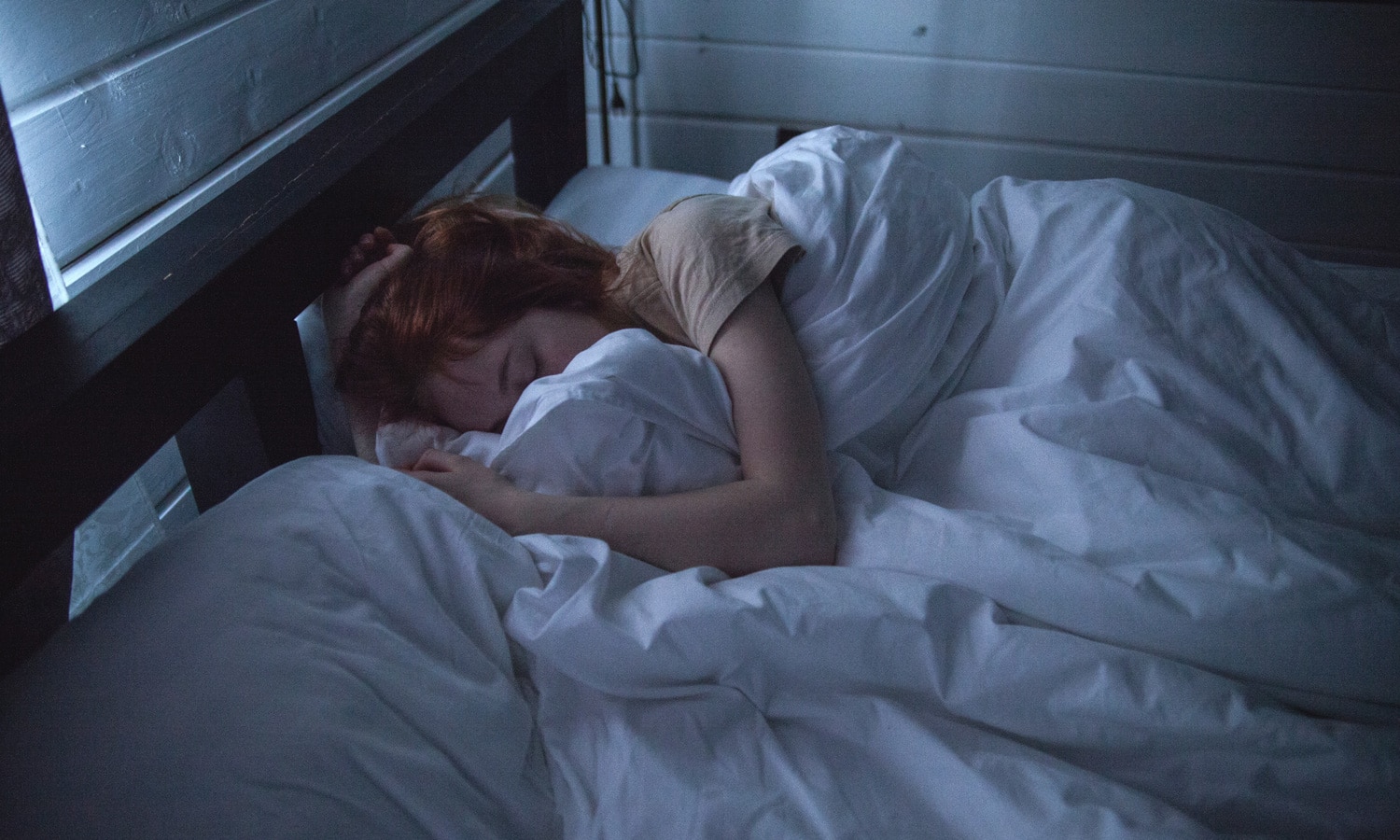While over-the-counter medicines can offer relief in a pinch, lifestyle changes can help you sleep more soundly for years to come.
We’ve all been there. With your mind racing and the seconds on the clock ticking, 6am is going to come entirely too early on such little sleep. In a pinch, you head to the kitchen to grab something (anything!) to help your body relax and sleep. Crinkling your nose at the taste of Nyquil, you settle in, expecting to feel recovered and energized when the sun rises. But it hardly works that way, right?
For some people, Nyquil can bring a buzz. That’s to do with the active ingredient, dextromethorphan. When combined with doxylamine succinate — another active ingredient in the medicine — the two work together to clear the nasal passages with drowsiness as a side effect.
Blocking histamine — a chemical in the body that causes many of the symptoms associated with allergies and is the body’s response to being attacked — can be helpful if you’re experiencing the sudden onset of a cold or flu. But dextromethorphan goes into the bloodstream, followed by the brain in an attempt to block the production of histamines. When the brain is disrupted, the exhausted, underwater feeling that occurs is the result.
RELATED: Just 16 Minutes Of Sleep Loss Can Harm Work Concentration The Next Day
The effect is multiplied with alcohol or some antidepressant medications and can cause some staggering side effects when combined. Often called serotonin syndrome, individuals who combine some antidepressants, such as Lexapro and Zoloft with dextromethorphan can experience high blood pressure, nausea, anxiety and nausea. Not to mention that long-term use of Nyquil can leave a mark on the liver and kidneys as well.

So, what’s a better bet to help the body get a restful, solid night’s sleep? Mayo Clinic explains that while over-the-counter medicines can offer relief in a pinch, lifestyle changes can help you sleep more soundly for years to come. Mayo also advised that frequent use of antihistamines can make them less likely to work over time.
“Most over-the-counter sleep aids contain antihistamines. Tolerance to the sedative effects of antihistamines can develop quickly — so the longer you take them, the less likely they are to make you sleepy.”
RELATED: Let’s Talk About Why Sleep Is Important — And How To Get Some
Marijuana and CBD have been shown to help with insomnia and certain conditions that make a good night’s sleep less likely. The American Sleep Apnea Association’s research shows that over 50 million Americans experience the pain of falling (and staying asleep) with complications due to 80 different sleeping disorders. A few studies have even found that marijuana can help with insomnia and a more restful night’s sleep when incorporated into a care routine — all with a lack of the side effects and long-term effects of Nyquil.


